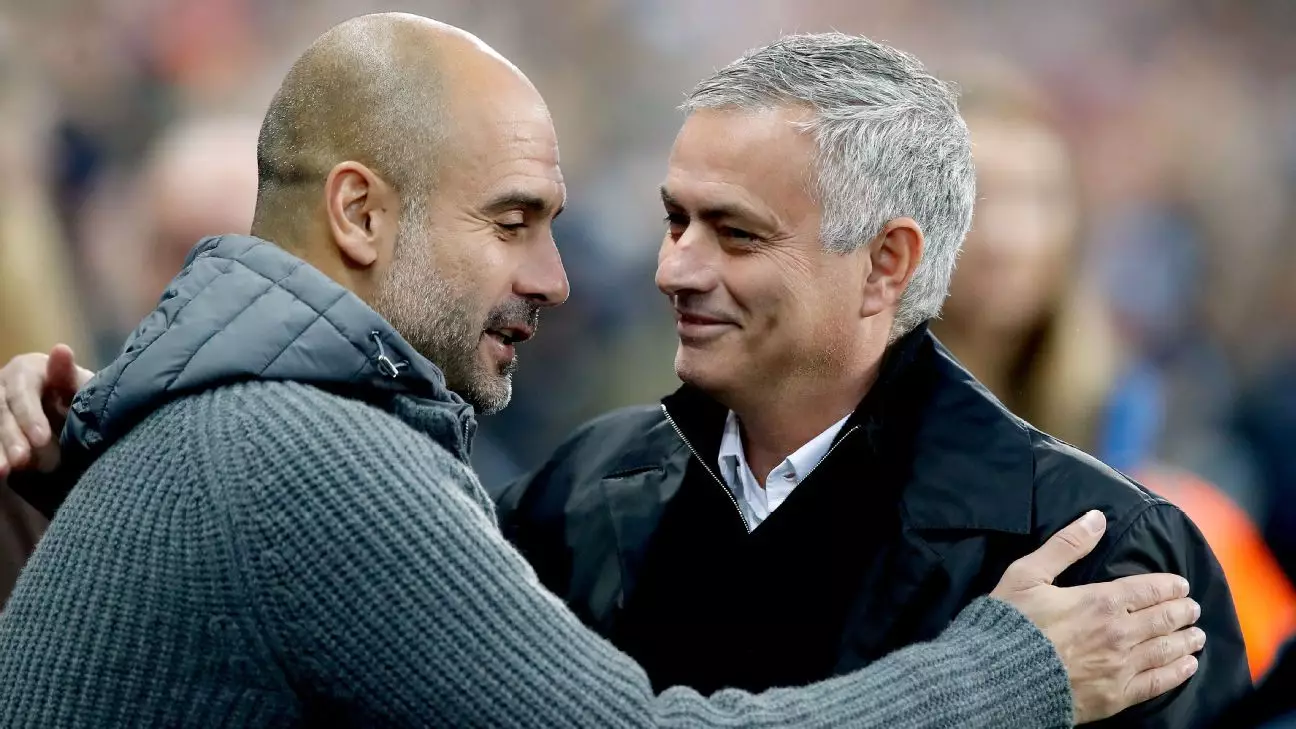The discourse surrounding football management often transcends the tactical and technical aspects of the game, veering into the realm of rivalries and historical accolades. Recently, the long-standing rivalry between José Mourinho and Pep Guardiola reignited, highlighting the nuances of football’s competitive landscape. This latest exchange, marked by Guardiola’s assertion of superiority with his six Premier League titles, was met with Mourinho’s sharp retort, marking the Portuguese tactician’s insistence on the integrity of his triumphs as a focal point of the discussion.
The rivalry between these two managers is steeped in history. Guardiola’s dominance in English football is compounded by his successful spells at Barcelona and Bayern Munich, granting him an impressive tally of domestic league titles. Conversely, Mourinho, known for his pragmatic approach, garnered immense success during his tenure at Chelsea. However, the debate reached a fever pitch when Guardiola mocked his rival during a press conference, holding up six fingers to playfully assert his title count amidst taunts from Liverpool fans following City’s defeat.
This playful banter, however, quickly morphed into a deeper dialogue regarding the legitimacy of their respective achievements. Mourinho’s quick flashback to his own title successes unfolds a narrative that challenges Guardiola’s dominance by insinuating that not all accolades are created equal— a notion grounded in ongoing controversies surrounding Manchester City’s financial practices.
Integrity and the Shadow of Controversy
Mourinho’s counter-argument hinges on the integrity of competitive victories. In a sport where the ethics of behavior and financial practices can impact title legitimacy, it’s vital to stress the importance of winning “fairly.” Mourinho, in his latest comments, did not shy away from addressing the cloud of financial violations that has hovered over Manchester City, pointing out that his three Premier League titles were acquired without such controversies.
The Portuguese manager’s remarks underscore the sentiment that while Guardiola may have accumulated more trophies, the manner in which they are achieved remains a critical aspect. He emphasizes the notion of deservingness in football: “If I lost, I want to congratulate my opponent because he was better than me,” he stated, revealing his core beliefs about competition.
As the season progresses, the pressure surrounding Guardiola has intensified, especially as Manchester City faces scrutiny off the pitch. Mourinho’s comments are not just a volley in a long-lived feud; they may act as a signal to reassess the nature of success in the sport. The fans and analysts alike must consider not just the number of titles won, but also the context in which they were achieved.
In a world where financial muscle increasingly dictates the success of football clubs, figures like Mourinho serve as reminders of the virtues of sporting credibility and meritocracy. As football continues to evolve, the debates among its leading figures will also serve to illuminate the broader conversations about fairness and integrity in the beautiful game.
